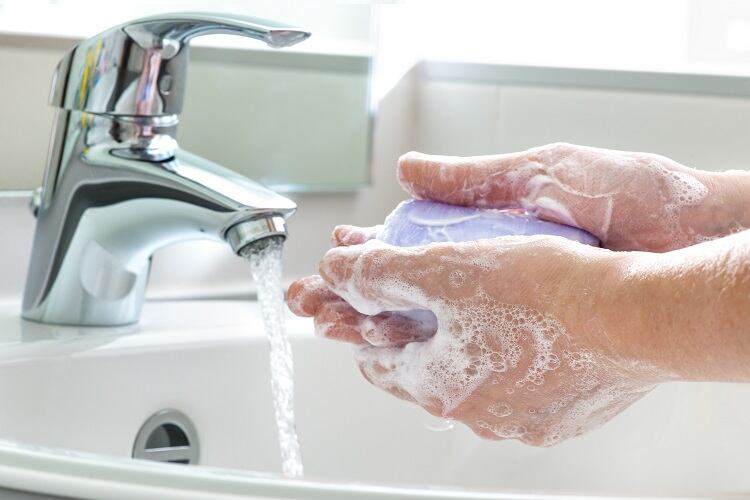Just 3 days earlier, Health Canada loosened hand sanitizer ingredient regulations to allow production to continue even while both USP-grade and food-grade ethanol are in short supply.
Canada’s temporary soap regulations during Coronvirus
The new more lenient regulations on both hand and body soap are meant to make soap more accessible during the Coronavirus health crisis:
“During the COVID-19 pandemic, Health Canada has implemented an interim policy to facilitate access to household cleaning products, hand soaps and body soaps that are not fully compliant with existing regulatory requirements (e.g., unilingual labelling, the ingredients listed on the label are not listed exactly as outlined in the regulations),” explains the agency’s advisory issued on April 18.
“However,” the agency emphasizes, “the interim policy does not change the enforcement priority for all other regulatory requirements under the applicable regulations that apply to household cleaning products and hand soaps and body soaps.”
New soap regulations apply to both imports and Canada-made products
All manufacturers and brands selling hand and/or body soap in Canada under the interim regulations must make every effort to match product labeling language to the known consumer base, that is, they must “prioritize the distribution of any products with bilingual or French-only labels to regions of Canada where the population mainly speaks and understands French.”
For importers, there are additional regulatory updates:
“To import products under this interim policy, importers are required to fill out a form and email it to hc.ccpsa-lcspc.sc@canada.ca before importing,” explains the advisory.
Also, “importers must also provide to Health Canada and make available on their website the label text, with required safety information, as per the CCPSA or FDA, as appropriate, in both official languages, and any required hazard symbols.” Though, “mock-up labels are not necessary.”
---

Deanna Utroske is a leading voice in the cosmetics and personal care industry as well as in the indie beauty movement. As Editor of CosmeticsDesign.com, she writes daily news about the business of beauty in the Americas region and regularly produces video interviews with cosmetics, fragrance, personal care, and packaging experts as well as with indie brand founders. Find out how else the Coronavirus crisis has changed the beauty industry in this recent #duviews video.

